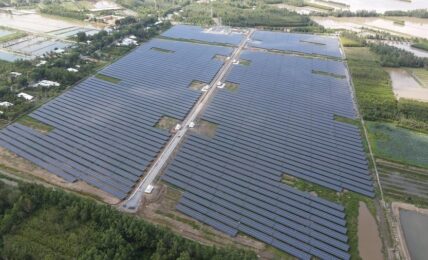The German government announced the launch of a new sustainable finance strategy, aimed at mobilising capital flows to sustainable investments, mitigate climate risk and strengthen financial market stability.
As part of its new strategy, the government stated that it will set requirements for sustainability reporting for companies. Additionally, the strategy promotes the redirecting of federal investments towards sustainable investment areas, and the development of a sustainability labelling system for private investors.
German Finance Minister Olaf Scholz said:
“Our Sustainable Finance Strategy sets a decisive course for the financial sector based on the core themes of climate action and sustainability. And that is important, because financial markets can steer trillions of euros towards climate action and sustainability. Sustainable investing means investing money with a view to the future and thereby supporting structural change. This is a win-win situation.”
One of the key focus areas for the new sustainable finance strategy is a push for greater transparency, with the government stressing the need for reliable and comparable information indicating how sustainability risks and opportunities affect companies’ business models and the impact of companies’ activities on the environment and human rights.
The government said that it has developed a list of requirements for non-financial corporate reporting, and that it will use the list as part of the upcoming negotiations for an ambitious new CSR Directive in the EU. According to the government, the list will require all publicly traded companies and major corporations with limited liability to present sustainability reports, which will be certified by auditors to prevent greenwashing.
The government also plans to introduce a “traffic light” system for private investors, providing a quick sustainability overview of companies’ practices regarding climate and human rights. While the government would prefer an EU-wide system, it will develop its own if one isn’t established.
German Environment Minister Svenja Schulze, said:
“The financial markets need clarity regarding which investments will still be worthwhile in the future – and which ones will become too risky because they are financing obsolete business models. For this approach to work, we need to clearly define what is sustainable and what isn’t.”
The government also announced plans to allocate federal investments into sustainable investments, introducing plans to shift the federation’s various civil-service pension funds over time to sustainable indices, and pledging to continuously reduce the carbon footprint of these portfolios.
Additionally, in order to further promote the development of the sustainable finance market, Germany aims to issue green bonds in further maturities in order to establish a green bond yield curve that will become a benchmark in the eurozone’s green capital market. The German federal government issued its first green bond in September 2020, employing an innovative “twin bond” model, intended to add value to the sustainable finance market in Europe, by issuing the securities alongside existing conventional securities with matching characteristics, including maturity and coupon.
The government also made it clear that it does not consider nuclear power as part of a sustainable energy system to be supported by sustainable investment flows, citing the long-term residual risks.
Schulze stated:
“For the German government, one thing is clear: nuclear power cannot be considered sustainable. Anyone who says otherwise threatens to undermine the credibility of a sustainable financial market policy. Nuclear power is no longer profitable, it isn’t clean and poses unavoidable, major residual risks that can no longer be imposed on the general public.”
The post Germany Pushes for Mandatory Sustainability Reporting as Part of New Sustainable Finance Strategy appeared first on ESG Today.

